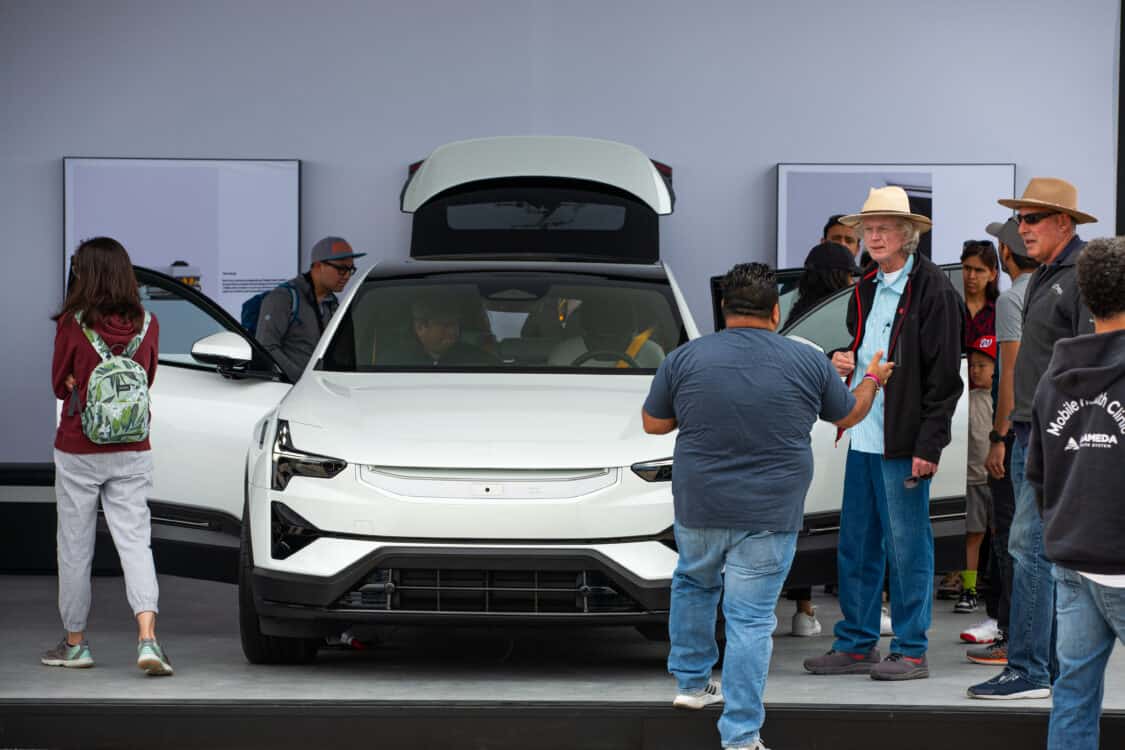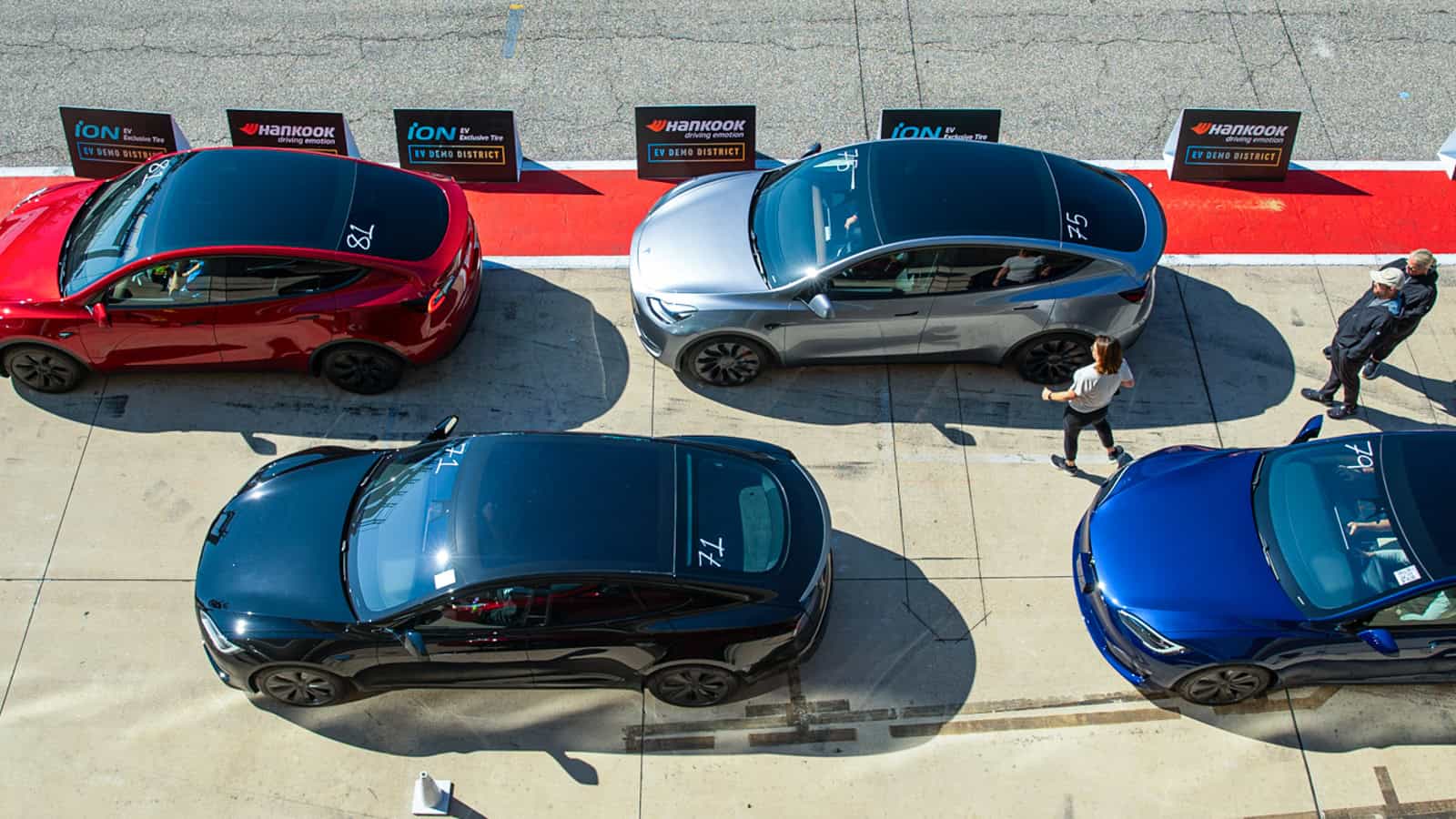- Canada will impose a 100% tariff on Chinese electric vehicles starting October 1st.
- The government views these tariffs as crucial for protecting Canadian workers and maintaining leadership in the automotive sector.
- Demand for affordable EVs in Canada is growing, with Chinese EV imports rising from C$100 million in 2022 to C$2.2 billion in 2023.
Canada’s decision to impose a 100% tariff on Chinese electric vehicles is shaking up the global automotive industry. While this might seem like a move to protect local jobs, it could have unexpected consequences, which could trigger controversy at a crucial time for electric vehicles. Are these tariffs a necessary defense, or are they creating barriers when cooperation is needed?
ADVERTISEMENT
Canada’s Tariffs on Chinese EVs Could Backfire, Undermining Efforts to Promote Electric Vehicles
Canada’s decision to impose a steep tariff on Chinese electric vehicles, along with extra duties on steel and aluminum, is clearly a response to rising concerns about unfair competition. Prime Minister Justin Trudeau, speaking in Halifax, described the policy as essential for keeping “Canada’s automotive sector a global leader in building the vehicles of tomorrow.”
“Today, we’re taking yet another step to ensure that Canada is the country of choice to make the things that’ll drive the new 21st century green economy,” says PM Trudeau, announcing his government will introduce new tariffs on Chinese-made EVs, steel and aluminum. #cdnpoli pic.twitter.com/04Z7UG2R8J
— CPAC (@CPAC_TV) August 26, 2024
Finance Minister Chrystia Freeland shares this view, stressing the need for a tougher approach to Chinese exports, especially given Canada’s close trade relationship with the United States.
The Canadian government, in its official statement, highlighted that these measures are “designed to protect Canadian workers and key economic sectors from unfair Chinese trade practices.”
The Finance Department’s release added, “China’s unfair trade practices are a threat to the Canadian economy, and these measures will ensure that Canadian workers and businesses can compete on a level playing field.”
Canada’s decision to raise tariffs on low-priced Chinese EVs to 100% follows a similar move by the United States. This step is part of a broader Western strategy to curb China’s growing influence in the global EV market.
However, the message here seems off-target. By focusing on punishing actions and protectionism, Canada might end up pushing away the consumers it wants to attract. This approach could backfire, increasing skepticism and making the EV debate even more political. The main concerns are trade and economic security, but the bigger challenge is effectively communicating the benefits of electric vehicles to the public.
ADVERTISEMENT
Canada’s EV Strategy Risks Overlooking What Really Matters to Drivers: Everyday Benefits
The Canadian government’s strategy, though well-meaning, highlights a key issue in our discussions about electric vehicles. The conversation has become so focused on sustainability, regulations, and global competition that we’ve overlooked what truly matters to consumers: the practical, everyday benefits of driving an EV.
Most people aren’t making the switch to electric because they want to save the planet. They’re doing it because EVs offer lower cost of ownership, easier maintenance, and, let’s not forget, a much more enjoyable driving experience. The reality is that making EV adoption about climate change or geopolitics could slow broader adoption, especially in markets like Canada where political ideologies often dictate consumer behavior.
“We’re transforming Canada’s automotive sector to be a global leader,” Trudeau stated. But is this shift happening because consumers want it, or is it being forced by the government? There’s a delicate balance between promoting innovation and suffocating it with strict policies. By focusing tariffs and protectionism, Canada could be overlooking a valuable chance to let EVs prove themselves based on their own strengths.
ADVERTISEMENT
Canada Tariff Deepens Political Divide on Electric Vehicles, Alienating Potential Buyers
Electric vehicles have, unfortunately, become a political issue in North America, dividing opinions along party lines. Tariffs like these only make that divide worse. Rather than encouraging widespread interest in EVs, this polarization risks turning away potential buyers who might feel excluded by the industry’s politicization.
When governments rely too heavily on mandates and penalties, it can create a disconnect between consumers and the products they want people to adopt. The new Canada tariff highlights this risk.

Instead of pushing change through regulations, the most effective way to win over skeptics is by giving them real, hands-on experiences and letting the market naturally respond. As the increasing import of Chinese EVs shows, there’s a strong demand for affordable electric vehicles, even with the challenges of tariffs and trade disputes.
ADVERTISEMENT
Let Market Competition Drive the Future of Canada’s EV Industry
The future of the EV industry should be guided by consumer choice and market competition. Let manufacturers innovate and compete on an even playing field. Give consumers the freedom to choose the vehicles that best meet their needs, without the added burden of politicized narratives.
The recent surge in Chinese EV imports to Canada—from less than C$100 million in 2022 to C$2.2 billion last year, according to data from Statistics Canada—demonstrates that there is significant demand for affordable electric vehicles. But instead of meeting this demand head-on, the Canadian government has chosen to erect barriers that could stifle innovation and limit consumer options.

“The value of Canadian innovation lies in its ability to compete globally, not in shielding itself behind trade walls,” said an industry insider who wished to remain anonymous. This sentiment echoes the growing frustration among manufacturers who feel that the government’s approach could do more harm than good in the long run.
As the Finance Minister stated, “We are taking decisive action to defend Canadian jobs and industries from unfair Chinese practices that threaten our economic security.” Yet, this approach might leave consumers feeling trapped in a tug-of-war between international politics, rather than feeling motivated by the advantages of modern tech.
ADVERTISEMENT

IMAGES: ELECTRIFY EXPO
FTC: We use income-earning auto affiliate links. Learn more.










